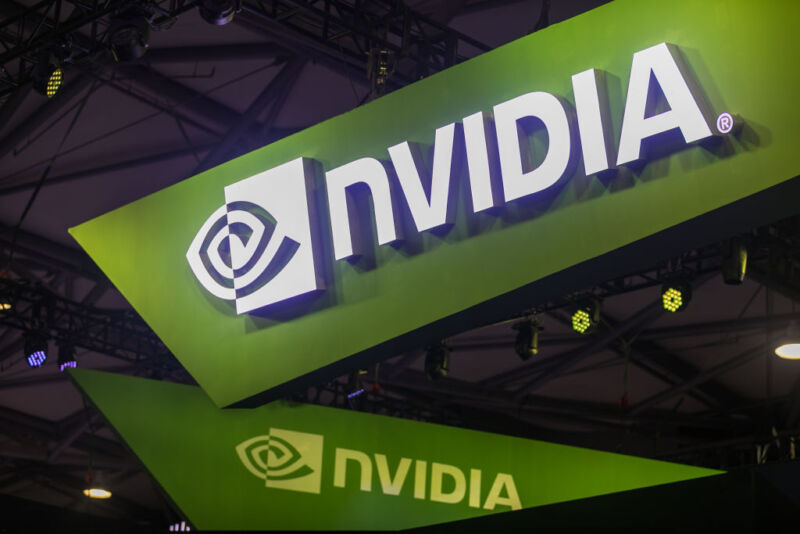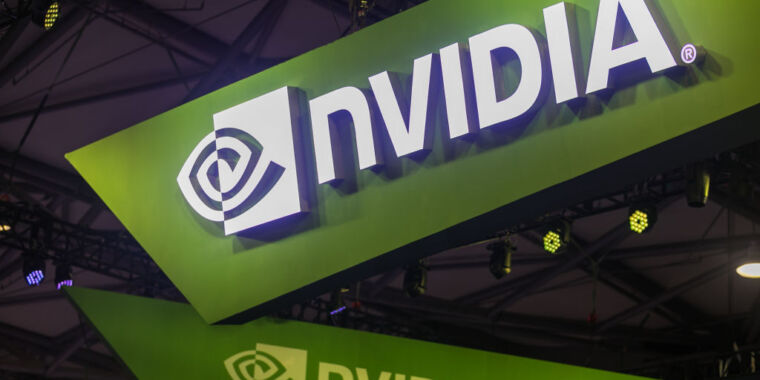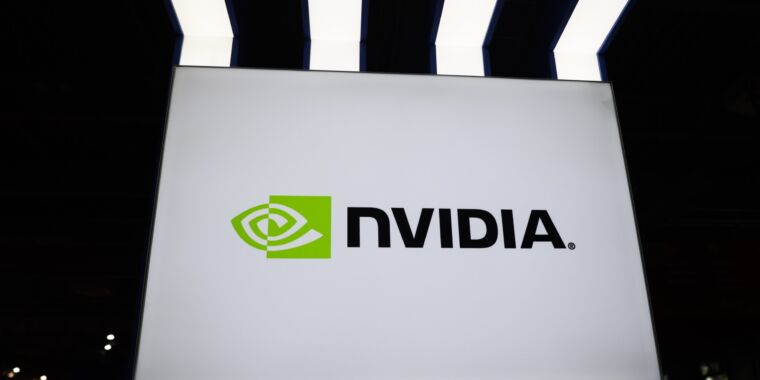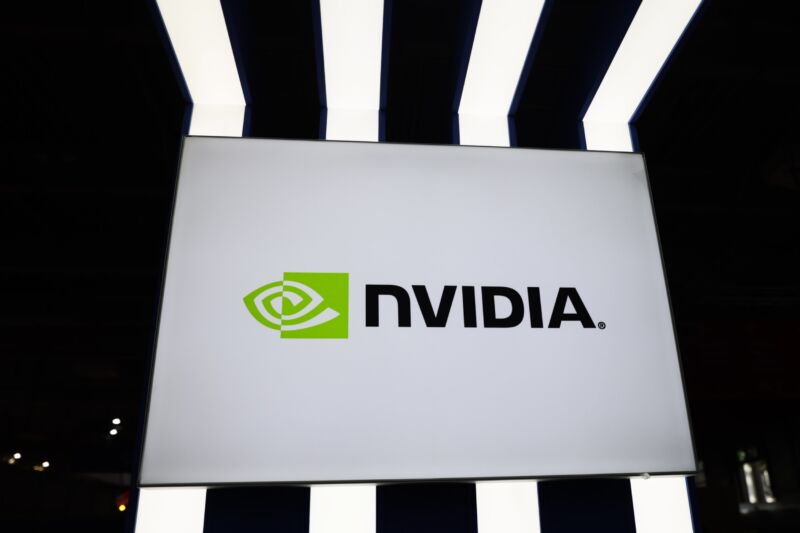Nvidia’s AI chips are cheaper to rent in China than US
secondhand channels —
Supply of processors helps Chinese startups advance AI technology despite US restrictions.

VGG | Getty Images
The cost of renting cloud services using Nvidia’s leading artificial intelligence chips is lower in China than in the US, a sign that the advanced processors are easily reaching the Chinese market despite Washington’s export restrictions.
Four small-scale Chinese cloud providers charge local tech groups roughly $6 an hour to use a server with eight Nvidia A100 processors in a base configuration, companies and customers told the Financial Times. Small cloud vendors in the US charge about $10 an hour for the same setup.
The low prices, according to people in the AI and cloud industry, are an indication of plentiful supply of Nvidia chips in China and the circumvention of US measures designed to prevent access to cutting-edge technologies.
The A100 and H100, which is also readily available, are among Nvidia’s most powerful AI accelerators and are used to train the large language models that power AI applications. The Silicon Valley company has been banned from shipping the A100 to China since autumn 2022 and has never been allowed to sell the H100 in the country.
Chip resellers and tech startups said the products were relatively easy to procure. Inventories of the A100 and H100 are openly advertised for sale on Chinese social media and ecommerce sites such as Xiaohongshu and Alibaba’s Taobao, as well as in electronics markets, at slight markups to pricing abroad.
China’s larger cloud operators such as Alibaba and ByteDance, known for their reliability and security, charge double to quadruple the price of smaller local vendors for similar Nvidia A100 servers, according to pricing from the two operators and customers.
After discounts, both Chinese tech giants offer packages for prices comparable to Amazon Web Services, which charges $15 to $32 an hour. Alibaba and ByteDance did not respond to requests for comment.
“The big players have to think about compliance, so they are at a disadvantage. They don’t want to use smuggled chips,” said a Chinese startup founder. “Smaller vendors are less concerned.”
He estimated there were more than 100,000 Nvidia H100 processors in the country based on their widespread availability in the market. The Nvidia chips are each roughly the size of a book, making them relatively easy for smugglers to ferry across borders, undermining Washington’s efforts to limit China’s AI progress.
“We bought our H100s from a company that smuggled them in from Japan,” said a startup founder in the automation field who paid about 500,000 yuan ($70,000) for two cards this year. “They etched off the serial numbers.”
Nvidia said it sold its processors “primarily to well-known partners … who work with us to ensure that all sales comply with US export control rules”.
“Our pre-owned products are available through many second-hand channels,” the company added. “Although we cannot track products after they are sold, if we determine that any customer is violating US export controls, we will take appropriate action.”
The head of a small Chinese cloud vendor said low domestic costs helped offset the higher prices that providers paid for smuggled Nvidia processors. “Engineers are cheap, power is cheap, and competition is fierce,” he said.
In Shenzhen’s Huaqiangbei electronics market, salespeople speaking to the FT quoted the equivalent of $23,000–$30,000 for Nvidia’s H100 plug-in cards. Online sellers quote the equivalent of $31,000–$33,000.
Nvidia charges customers $20,000–$23,000 for H100 chips after recently cutting prices, according to Dylan Patel of SemiAnalysis.
One data center vendor in China said servers made by Silicon Valley’s Supermicro and fitted with eight H100 chips hit a peak selling price of 3.2 million yuan after the Biden administration tightened export restrictions in October. He said prices had since fallen to 2.5 million yuan as supply constraints eased.
Several people involved in the trade said merchants in Malaysia, Japan, and Indonesia often shipped Supermicro servers or Nvidia processors to Hong Kong before bringing them across the border to Shenzhen.
The black market trade depends on difficult-to-counter workarounds to Washington’s export regulations, experts said.
For example, while subsidiaries of Chinese companies are banned from buying advanced AI chips outside the country, their executives could establish new companies in countries such as Japan or Malaysia to make the purchases.
“It’s hard to completely enforce export controls beyond the US border,” said an American sanctions expert. “That’s why the regulations create obligations for the shipper to look into end users and [the] commerce [department] adds companies believed to be flouting the rules to the [banned] entity list.”
Additional reporting by Michael Acton in San Francisco.
© 2024 The Financial Times Ltd. All rights reserved. Please do not copy and paste FT articles and redistribute by email or post to the web.
Nvidia’s AI chips are cheaper to rent in China than US Read More »




